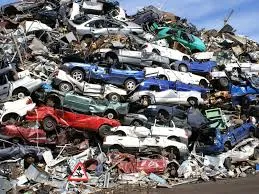

Desemba . 01, 2024 15:11 Back to list
Eddy Current Non-Ferrous Metal Separator Revolutionizing Metal Recycling
In the ever-evolving landscape of recycling technology, the Eddy Current Non-Ferrous Metal Separator stands out as a groundbreaking innovation that enhances the efficiency of metal recovery processes. This advanced technology plays a pivotal role in the recycling industry, especially concerning non-ferrous metals such as aluminum, copper, brass, and zinc. As the world shifts towards more sustainable practices, understanding the operation, advantages, and applications of this technology becomes essential.
Understanding Eddy Current Separators
The eddy current separator operates on a principle discovered in the 19th century, but its application in recycling has gained significant traction in recent years. The core of the device features a rapidly rotating magnetic field that induces eddy currents in non-ferrous metals. These currents generate their magnetic fields, creating a repulsive force that effectively separates non-ferrous metals from other materials, including ferrous metals and non-metallic substances.
The primary components of this separator include a robust conveyor belt, an induced magnetic rotor, and advanced sensors. As mixed materials are fed onto the conveyor, the rotating magnetic field interacts with non-ferrous metals, causing them to be propelled away from the rest of the material stream. This process yields a high purity of recovered metals, which can be reintroduced into production cycles, significantly reducing the demand for new raw materials.
Advantages of Eddy Current Separators
One of the standout features of the Eddy Current Non-Ferrous Metal Separator is its ability to achieve high purity levels in metal recovery
. Unlike traditional methods, which often lead to contamination between different types of metals, this technology effectively isolates non-ferrous metals, ensuring that recovered materials meet industry standards for reusability.Another key advantage is the separator's efficiency. With the capability to process large volumes of material quickly, it significantly reduces the time and labor costs associated with manual sorting processes. Facilities equipped with Eddy Current Separators can increase their throughput, allowing them to handle more material within a given timeframe. This efficiency is crucial in meeting the growing demand for recycled metals in various industries, including automotive, construction, and electronics.

Moreover, this technology promotes environmental sustainability. By facilitating the recovery of non-ferrous metals, it reduces the need for mining and processing new raw materials, which often involve significant ecological disruption and energy consumption. Utilizing recycled metals contributes to lower carbon footprints and supports the circular economy, making it an essential component of modern recycling operations.
Applications in Various Industries
The application of Eddy Current Non-Ferrous Metal Separators spans across various sectors, reinforcing their versatility. In the automotive industry, these separators are pivotal in recovering valuable metals from end-of-life vehicles. Scrap yards and metal recovery facilities utilize this technology to extract metals from mixed waste streams, ensuring that valuable resources are not lost in landfills.
Additionally, electronics recycling facilities benefit immensely from this technology. With the rapid growth of e-waste, the demand for efficient metal recovery processes has surged. Eddy current separators enable the recovery of precious metals from discarded electronics, directly contributing to resource conservation and waste reduction.
In the construction sector, these separators play a vital role in processing mixed construction debris, allowing for the recovery of metals from old buildings and infrastructure. This not only aids in waste management but also supports the reusing of materials, aligning with sustainable building practices.
Conclusion
The Eddy Current Non-Ferrous Metal Separator is more than just a piece of machinery; it represents a significant leap forward in recycling technology. By improving the efficiency and purity of metal recovery, it not only bolsters the recycling industry's capacity but also promotes environmental sustainability. As we continue to face the challenges of resource depletion and ecological degradation, innovations like the Eddy Current Separator will be crucial in forging a path towards a more sustainable future. Embracing such technologies will undoubtedly pave the way for a healthier planet and a more circular economy.
Latest news
The Future of Metal Recycling: Revolutionizing Waste Management
NewsMay.14,2025
Optimizing Waste with Recycling Lines
NewsMay.14,2025
Municipal Solid Waste Sorting Line: Revolutionizing Waste Management
NewsMay.14,2025
Metal Shredders: Essential Tools for Efficient Recycling
NewsMay.14,2025
Maximize Your Profits with a Copper Wire Granulator
NewsMay.14,2025
Home Metal Shredder: A Smart Choice for Your Home Recycling Needs
NewsMay.14,2025